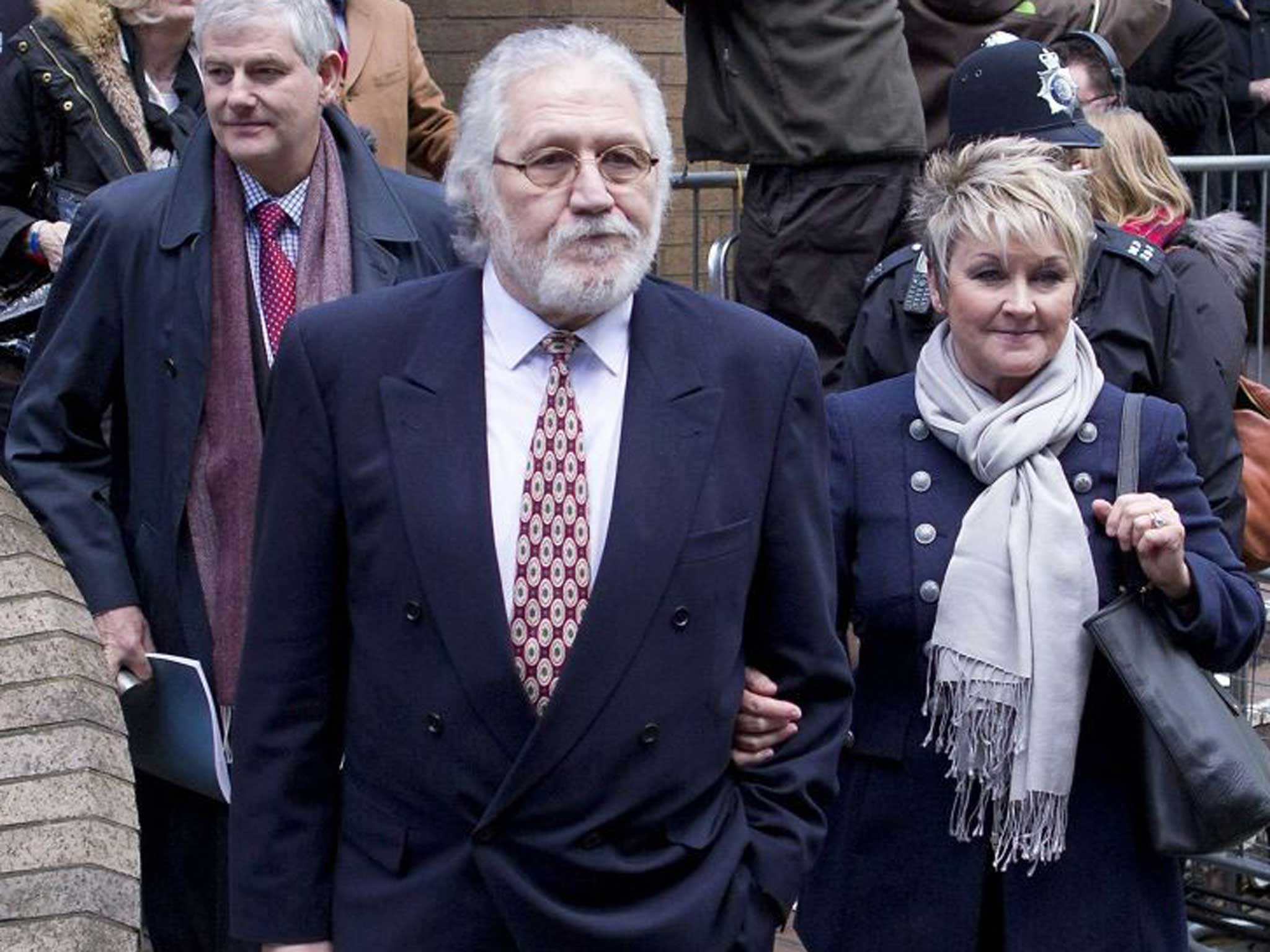A cultural change we once only dreamt of
The sexist culture of the Sixties and Seventies that has been exposed by high-profile sexual assault cases has become an embarrassment

Early in my career, I worked on a radio station where I occasionally had to read the hourly news bulletin. In those days, the kind of behaviour described in court by the former Radio 1 DJ Dave Lee Travis was far from unusual. Even in local radio, some DJs had the status of pop stars, swaggering in and out of the building and sending signed photographs of themselves to fans. Also in those days, there was no one to complain to with any confidence; in a contest between one of the station's male stars and a female journalist, there could be only one outcome. So when people shrug their shoulders and say "that was the culture" in the Seventies and Eighties, they're right in a limited sense. But it was regarded by some who hated it as a culture of opportunism, based on an imbalance of power.
Let's jump forward several decades to Operation Yewtree, the police inquiry prompted by the crimes of Jimmy Savile. Only five years ago, the laddish culture of the Sixties was still being celebrated in Richard Curtis's dreadful film The Boat That Rocked, which glamorised the compulsive shagging of fictional pirate radio DJs as good clean fun. Now the culture the film was based on finds itself on trial, both in the law courts and in the wider context of radically changed attitudes towards gender.
Inevitably, it is the legal process that has received most attention, with one woman after another – and some men, let's not forget – coming forward to allege abuse at the hands of a series of household names. Travis, who was cleared last week of 12 charges of indecent assault, described the "different culture" in court, recalling that "people would pat a girl on the bottom or something like that" and the women would be "laughed at" if they complained. He denied touching any of his accusers sexually, but he said he would hug people he liked. "I will hug them and give them a kiss – the whole world needs more of that," he declared.
Actually, I don't think the world does need more of that. I don't know many women who would be relaxed about being hugged and kissed by men they work with – and it's hard to square such assumptions with modern principles of gender equality. The days when all Radio 1 DJs were men, an inheritance from offshore pirate stations such as Radio Caroline, are long gone.
If we stand back from sensational court cases for a moment, there is a big upside to all this. In the past couple of years, the true nature of behaviour that used to be tolerated or tacitly condoned is finally being recognised. It's hard to believe that another BBC presenter, the late John Peel, used to boast about getting blowjobs from underage girls when he worked in Texas. With female stars such as Madonna and Lady Gaga calling the shots, the sexist nature of Sixties pop culture has become an embarrassment, to say the least.
All these controversies, whether or not they end up in court, are about a redrawing of boundaries. The Lib Dems have been caught out by the process, leading to an unedifying public row about the behaviour of their former chief executive. Lord Rennard is currently suspended from the party after refusing to apologise when a leading QC concluded that he had invaded the personal space of several women.
What's happening is an inevitable consequence of women achieving positions of influence and challenging the unwritten rules of a workplace that used to be dominated by men. In the modern world, no one should imagine that being famous bestows a licence to hug, kiss or touch other people without the usual and not very onerous process of obtaining consent. To do anything else may not always breach the law but it is an abuse of power, and creates a climate of impunity in which ruthless predators such as Savile are able to flourish.
Indeed, the Savile case should give pause to anyone who feels like joining the cries of "witch-hunt" which have followed the acquittals of Travis and the Coronation Street star William Roache. Operation Yewtree is a conscious effort on the part of the police to make up for past mistakes, with all the risks that entails.
The former director of public prosecutions Keir Starmer summed up the dilemma after the Travis trial ended: "Every police officer and every prosecutor knows when bringing such a case that, in the event of a conviction, the criticism will be that the case was not brought sooner and more robustly, and that, in the event of an acquittal, there will be charges of a witch-hunt."
Two celebrity acquittals in the space of a week were bound to create sensational headlines. But they should not be allowed to obscure the fact that we are living through a process of necessary cultural change. A more equal society, which respects the bodily integrity of both sexes, is a better place for everyone.

Join our commenting forum
Join thought-provoking conversations, follow other Independent readers and see their replies